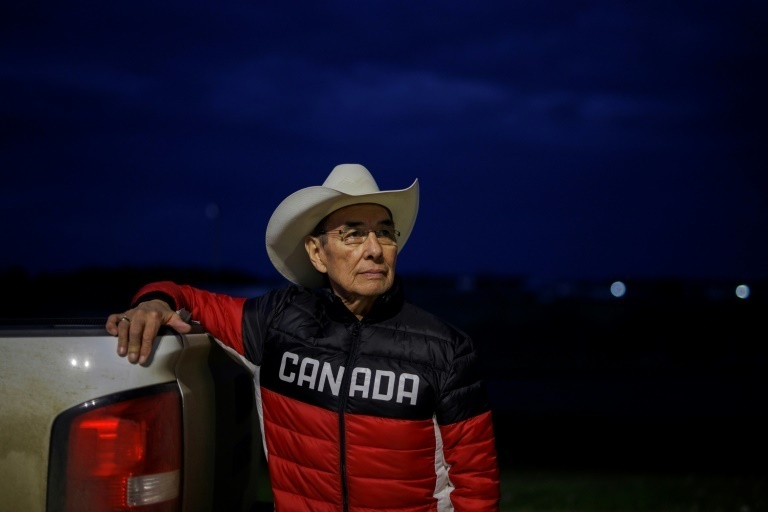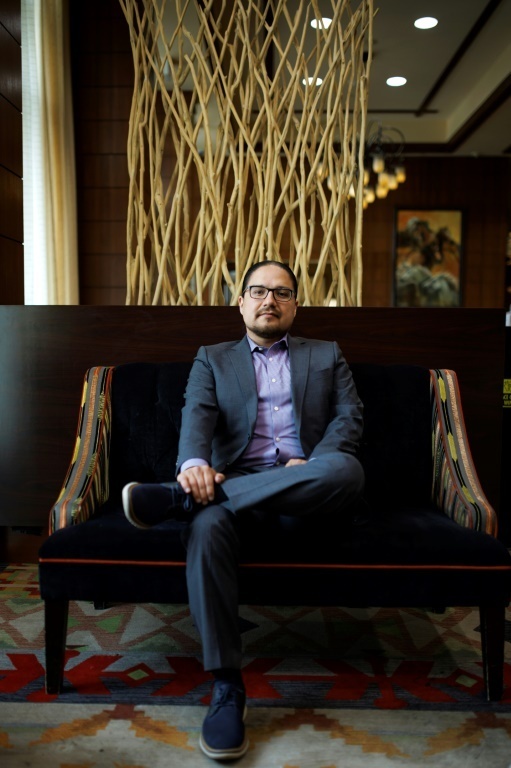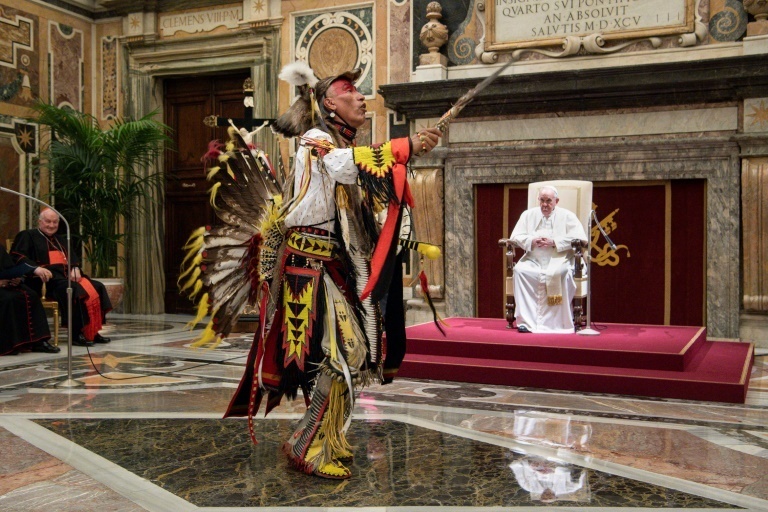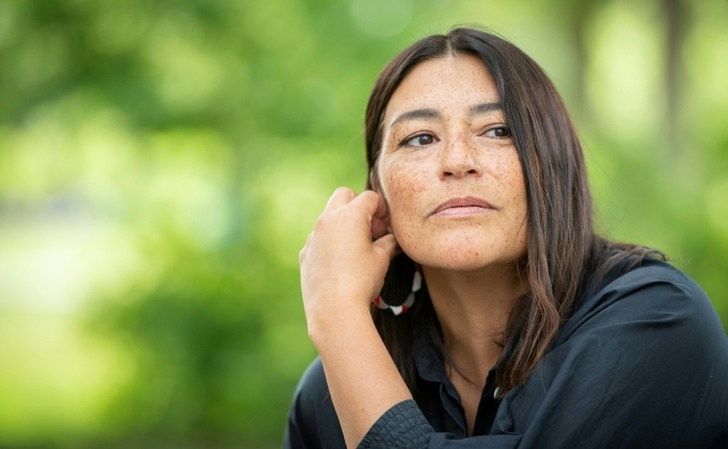Pope Francis's upcoming visit to Canada, where he is expected to apologize to Indigenous peoples for more than a century of abuses at state schools run by the Church, has provoked hope but also wariness.
AFP spoke to an Indigenous artist, a chief, and a former student of one of the schools, where children suffered through a failed government policy of assimilation that cut them off from their families, languages and culture.
Here is a snapshot of their views on the pope's trip.
- 'Mixed feelings' -
A singer-songwriter and activist originally from the far northern Inuk community of Salluit, Elisapie Isaac has become a voice for her people.
"I have mixed feelings about the coming of the pope," says the 45-year-old, who recently appealed on social media to Quebec's premier to recognize "systemic racism" in the Canadian province.
"I tell myself that it must be good for the survivors to feel that there is action, to know that it is coming. But I also tell myself that the devout were probably the worst for natives," she says, adding that "it's too easy" to come now -- decades after the fact.

The papal visit must "highlight the people who have suffered... they are the ones who count."
It's high time for institutions such as the Catholic Church to do their part, she says, because otherwise "it is very difficult to move forward as a society and to live together, to feel that there is balance and harmony."
"I think we had an awakening and people are listening. They want to reach out to us and that's an incredible breath of fresh air. It almost heals us. Now it's up to the institutions to act."
- 'A long road' -
Wilton "Willie" Littlechild celebrated his 78th birthday on April 1, 2022 -- on the same day he and an Indigenous delegation met with Pope Francis in Rome, where the pontiff issued an apology and vowed to repeat it in Canada.
"I could not have had a better birthday gift," says Littlechild, who spent 14 years in one of the schools starting at the age of six.

During trips to the Vatican he urged them to come to Canada and apologize, in person, to its Indigenous population of more than 1.6 million people -- almost one-third of whom identify as Roman Catholic.
"In order for us to heal... as best we can, we need an apology," he tells AFP.
Littlechild throughout his life has worked tirelessly to advance Indigenous rights, including at the United Nations where he worked on the UN Declaration on the Rights of Indigenous Peoples.
Wearing a cowboy hat and a shirt adorned with images of wolves and dreamcatchers, he says he survived his residential schooling through study and sports.
"Sports saved my life, hockey saved my life," he says, recalling going for nightly runs to try to forget the abuse that often left him in tears.
And eventually, he says, "I forgave."
- Apology 'a huge deal' -
Chief Billy Morin -- leader of the Enoch Cree Nation, an Indigenous community near Edmonton, Alberta of about 2,700 residents -- says he is "hopeful" the papal visit will help heal scars left by the failed government policy of forced assimilation through education.
"Not everybody wants the pope to apologize. They don't care about it," he acknowledges.

At 35, Morin says he is grateful to have avoided being put in a residential school like his grandparents were.
But like many of Canada's Indigenous peoples, he has not escaped the schools' painful legacy, pointing to intergenerational trauma, often manifested by alcoholism and emotional detachment, that continues to affect his family and community.
"Our grandparents and my parents had to relearn how to be good parents," explains the father of four, who is only now learning the Cree language of his forebears.
The occasional church-goer says of Francis's visit: "It's a good thing... because if he didn't this question would always remain outstanding."
"It's a huge deal," he says, adding that it's also merely "a step" in a "healing journey."
"We're definitely not at the end."
bur/st/leg
© Agence France-Presse
Your content is great. However, if any of the content contained herein violates any rights of yours, including those of copyright, please contact us immediately by e-mail at media[@]kissrpr.com.
Source: Story.KISSPR.com

